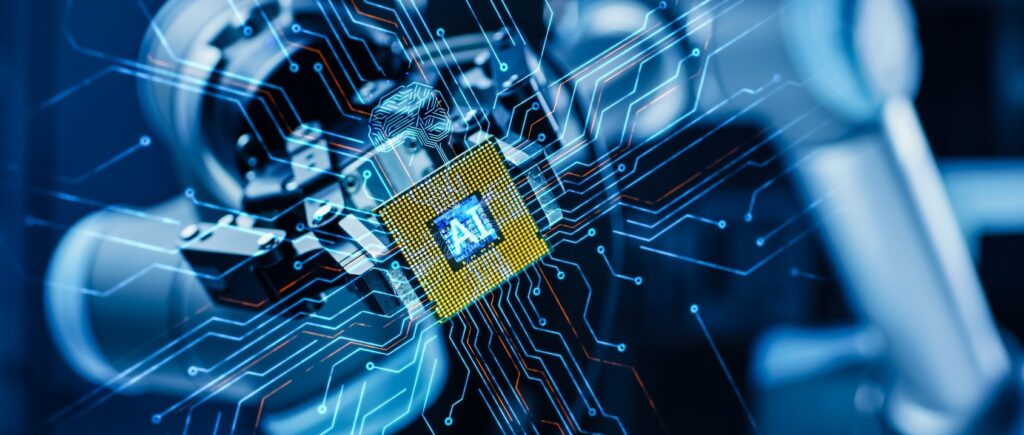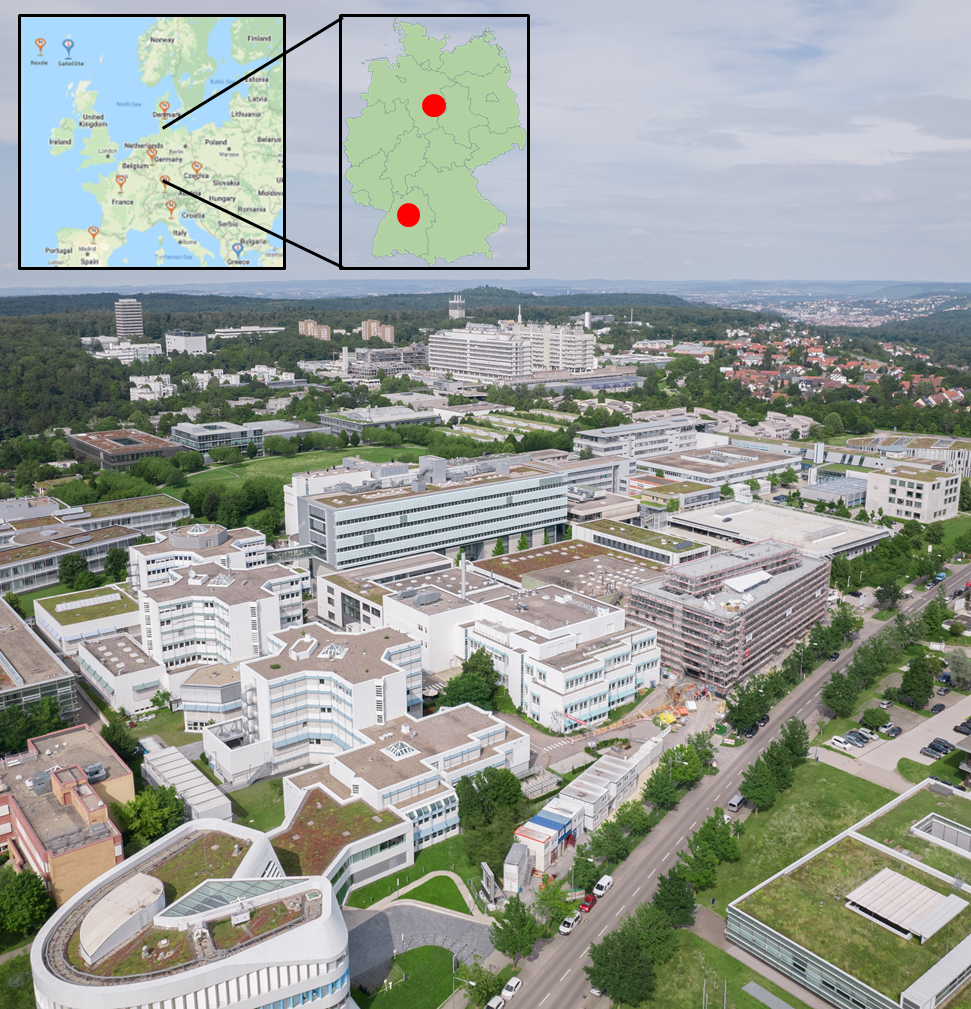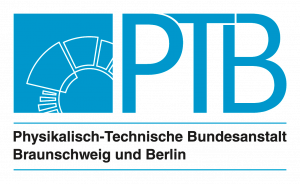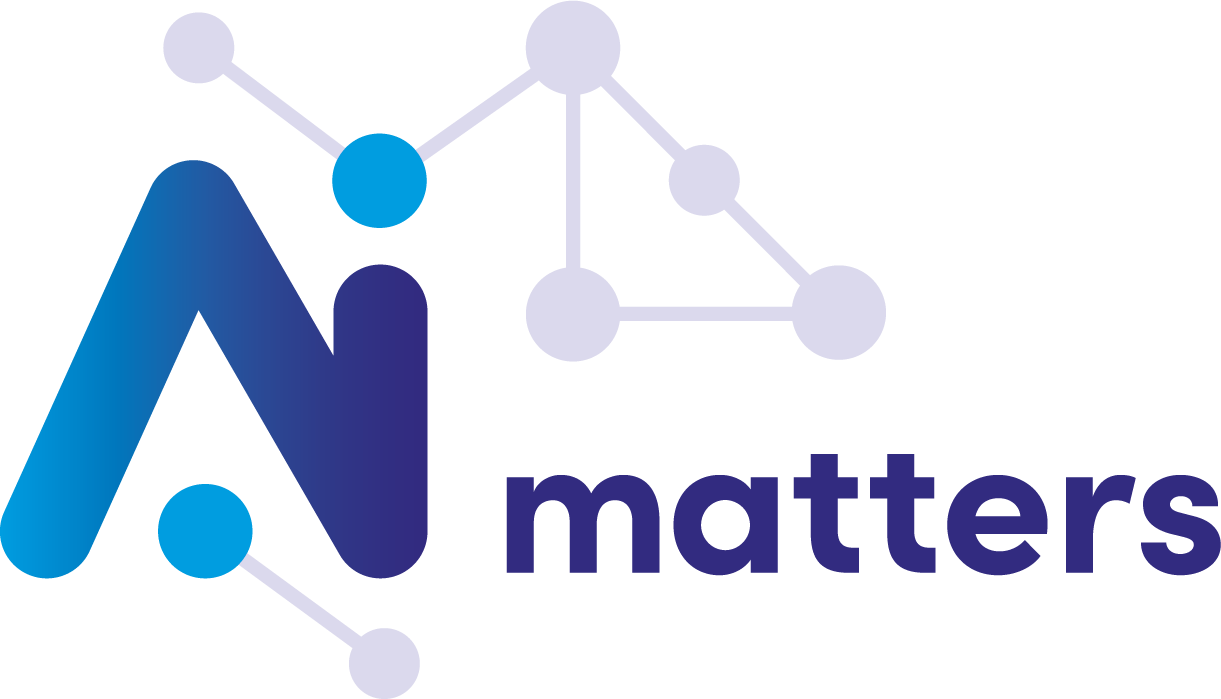Germany
within the AI Matters project

The German node is located in Stuttgart, Germany, with one member in Braunschweig, and comprises four partner institutes.
For example, the node has the following technological objectives:
- Testing collaborative robot applications
- Testing AMR systems
- Evaluation of AI-based systems in production metrology
- Testing AI-supported drive systems
Member of the consortium
German knot
AI-based applications for numerous industries and applications such as
- Manufacturing
- Logistics
- Automotive industry
- Electronics

5
Years Term
24
partner
8
Countries 7 Nodes 1.6 million euros Budget
30M€
million euros in EU funding
Members of the node

Fraunhofer IPA
- Head of the German node
- part of the Fraunhofer-Gesellschaft
- Fraunhofer is one of the largest organizations for applied research worldwide
- Fraunhofer IPA develops applications in the context of manufacturing and automation
- part of the Fraunhofer-Gesellschaft
- Fraunhofer is one of the largest organizations for applied research worldwide
- Fraunhofer IPA develops applications in the context of manufacturing and automation
Contact person:
Dr. Björn Kahl
bjoern.kahl@ipa.fraunhofer.de
Dr. Björn Kahl
bjoern.kahl@ipa.fraunhofer.de

Institute for Electrical Energy Conversion
- Part of the University of Stuttgart
- Research focuses on electrical machines and contactless energy transmission
- Applications in the fields of mobility, medical technology and industrial automation
- Research focuses on electrical machines and contactless energy transmission
- Applications in the fields of mobility, medical technology and industrial automation
Contact person:
Urs Pecha
urs.pecha@iew.uni-stuttgart.de
Urs Pecha
urs.pecha@iew.uni-stuttgart.de
Research Campus ARENA2036
- Research campus with over 50 partners from industry and science on one platform
- Focus on research in production and mobility
- Establishment of services with robotics infrastructure for AI applications
- Focus on research in production and mobility
- Establishment of services with robotics infrastructure for AI applications
Contact person:
Muhammad Saeed
muhammad.saeed@arena2036.de
Muhammad Saeed
muhammad.saeed@arena2036.de

Physikalisch-Technische Bundesanstalt (PTB)
- National Institute of Metrology
- Founded in 1887
- Three locations with approx. 2000 employees
- Institution of the Federal Ministry of Economics and Climate Protection
- Department of Production Metrology, focus: Precision Length Metrology
- Virtual instruments (digital twins), testing of algorithms for CMMs
- Founded in 1887
- Three locations with approx. 2000 employees
- Institution of the Federal Ministry of Economics and Climate Protection
- Department of Production Metrology, focus: Precision Length Metrology
- Virtual instruments (digital twins), testing of algorithms for CMMs
Contact person:
Dr. Harald Bosse
harald.bosse@ptb.de
Dr. Harald Bosse
harald.bosse@ptb.de
Node members
Fraunhofer IPA
- Leading the German node
- Part of Fraunhofer organization
- Fraunhofer is biggest applied research organization in Germany
- Fraunhofer IPA focuses on manufacturing and automation
Lead contact
Dr. Björn Kahl
bjoern.kahl@ipa.fraunhofer.de
Institute of Electrical Energy Conversion (IEW)
- Part of University of Stuttgart
- Research focus on electrical machines and contactless energy transfer
- Applications in the areas mobility, medical technology and industrial applications
Lead contact
Urs Pecha
urs.pecha@iew.uni-stuttgart.de
Research Campus ARENA2036
- Research campus with over 50 partners from industry and science on one platform
- Focused on research in production and mobility
- Establishing services with robotic infrastructure for AI applications
Lead contact
Frederik Wulle frederik.wulle@arena2036.de
Physikalisch-Technische Bundesanstalt (PTB)
- National metrology institute
- Founded 1887
- Today: 3 sites, staff: ≈ 2000
- Agency of Federal Ministry for Economic Affairs and Climate Action
- Precision Engineering Division focus: manufacturing metrology
- Virtual instruments (dig. twin), Testing of algorithms for CMM
Lead contact
Dr. Harald Bosse harald.bosse@ptb.de
Infrastructure and services of the German node
Robotics laboratory at Fraunhofer IPA, one of the test and experimentation rooms of the German Node.
Experimental rooms
- ARENA2036 (main building)
- Werk150 – Training and testing facility for efficient production
- Robotics laboratory and other facilities at Fraunhofer IPA
- IEW at the University of Stuttgart
Infrastructure
- Measuring equipment for industrial robots (laser trackers, collision pads)
- Mobile robot measuring devices (optical tracking system, area monitoring system)
- Production line & production cell environment
- Robot cell environment
- Test benches for image processing
- Test benches for electrical machines and drives
Exemplary services offered
- Validation of AI algorithms for production with data sets or virtual environments
- Validation of AI algorithms in physical production environments (production lines, robot cells, production logistics)
- Testing the latest technologies such as 5G, 6G, compute clusters and other digital infrastructures
- Certification of AI algorithms for image compression and classification, e.g. of CT data or electron microscope images of nanoscale particles
